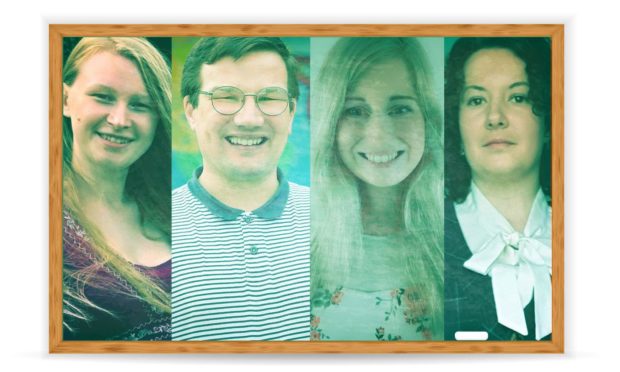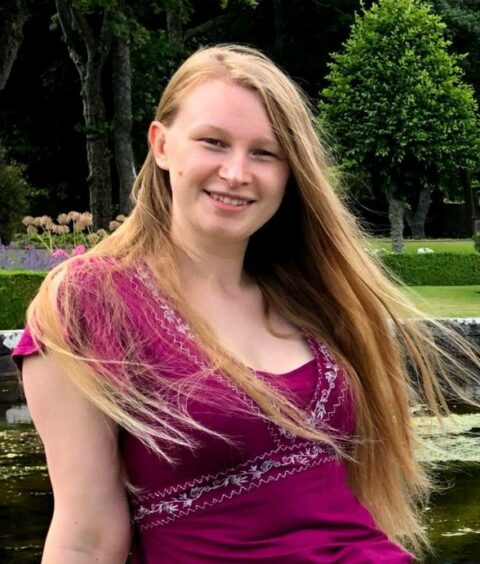Everyone struggled during the Covid-19 pandemic, and teachers weren’t an exception.
Luckily, the hard-working teachers in the north adapted and found new ways to teach and care for their pupils.
But imagine being one of those who were new to teaching, trying to start a career during a global pandemic.
We spoke to four young teachers on their year in the job.
Some had to quickly develop new teaching skills, others found new ways to build connections with teachers and students remotely.
But they all found a new appreciation for the resilience of their pupils and their colleagues, who made the most of adversity and are now looking forward to a year in the classroom.
Good habits make a difference
Stacy Johnston completed her Professional Graduate Diploma in Education at the University of the Highlands and Islands (UHI) Orkney in 2020. She had to learn quickly because the pandemic robbed her of important classroom experience.
“Due to the lockdown of March 2020, I was unable to carry out my third placement… which meant that I did feel a little unprepared for the start of my probation year.
“However, I was determined and spent the summer making up for this, creating resources, looking at ideas for teaching and carrying out CPD courses to help me to prepare as much as possible.”
She said that she spent a typical day focusing on helping children remember to follow the health guidelines on not sharing items and sanitizing. She also found that it was important to teach skills for strengthening their mental health and wellbeing.
“As a result of Covid, a lot of the children were understandably very anxious, so I created a wellbeing station looking at understanding emotions for the children with a calm toolkit box of items which really helped them in coping with the ever-changing environment.”
‘Theory will never fully prepare you for teaching’
Anna Jusinska just earned her PGDE from UHI Orkney, and she will begin her probation year this week at Kirkwall Grammar School. During her experiences with her placements in Orkney, she found online teaching a challenge, especially when it came to building connections with pupils.
“Sure, sitting in my favourite armchair was definitely a luxury, but not being able to see my pupils gave me more understanding of just how important face-to-face teaching really is.
“Without being able to see my pupils’ facial reactions or sometimes ever hearing their voices, it was really difficult to assess if they understand the lesson.
“Group work, which I am a big fan of, was practically impossible. Of course, Teams offers this feature, but not every pupil was keen to participate in a voice call with their peers.
Being new to a profession brings its own challenges even in the most normal of times, she said. And despite the benefits of her PGDE program, she said that nothing could have properly prepared her for working with pupils remotely during a pandemic.
“Being new to the profession is a challenge because you start from zero! No experience, no resources, and a lot of things to learn and discover.
“Theory will never fully prepare you for teaching. You learn in the classroom. Similarly, I had to learn new critical thinking skills, organising my day and making lessons and engaging during remote learning on the job.”
Teaching feels like more than a job
Like many of his colleagues, new P1/P2 teacher Fraser Welsh finished his PGDE at Inverness College UHI amidst the first lockdowns in 2020, and started his first year as a teacher at Dingwall Primary School last August.
He learned that taking care of his students meant understanding their needs and their family’s situation.
Since, not all families have the same access to resources, time or devices, delivering lessons was all about adapting content and assignments to match what families had at hand. Sometimes that meant paper assignments, he said.
Other times it meant being available at all times for parents to answer questions.
“There was that kind of need to be there almost 24/7. When you’re a teacher it’s your vocation, more than your job. You’re looking after your class all the time. So I made sure I was able to be contacted whenever.”
But that in itself leads to extra stress on the teachers, and Mr Welsh said that it was important to pay attention to his own mental health and wellbeing.
“I just got so much help from my colleagues. I don’t think I could have done it without their support.”
Good teaching means putting pupils first
Hazel Pinner is in her fourth year as a primary teacher, after graduating from Moray House School of Education at the University of Edinburgh. She said that she had two distinct experiences with the lockdowns in 2020 and 2021. The first lockdown, she admitted, had her scrambling to find the most effective methods.
“It was a steep learning curve in terms of developing digital skills and working out with colleagues how to balance work provided online with active learning activities.”
She said the pandemic taught her to adapt and use new tools that she wouldn’t have considered in other years. It even helped her expand her reach through the use of online resources.
But she was most amazed by the ways she saw pupils looking out for one another.
“I have been amazed at the resilience, understanding and care for others that pupils across Orkney have exhibited throughout the Pandemic. Some pupils have flourished learning at home while others have found it distracting or difficult.”
With multiple years of experience under her belt, Ms Pinner found that many of the qualities that made for a good pandemic teacher apply universally.
“I would say that more important than the ‘what’ we do is the ‘why’ we do it. In my view, underpinning a good teacher are the values we hold which shape and guide our practice.
“It means putting the pupils first and considering the why behind the response, behaviour, or struggle to grasp a point of learning.”
Read more from the Schools and Family team
The Big Exams Shake-up: How do other countries test their school pupils?
‘We just want what’s best for our children’: Why is it so hard to recruit teachers to our islands?




